Dynamic inventory of the world's 9 largest plant factories in 2021
Plant factories have developed rapidly in recent years with the expectation of human beings for new ways of planting in the future. More and more vegetable varieties cultivated in plant factories are reaching consumers. However, the key problems of plant factories, such as high cost, poor crop quality, and low intelligence, have not been effectively solved.
In terms of cost, the pre-construction cost of plant factories is difficult to ignore. Taking a commercial plant factory of 5,000 to 10,000 square meters as an example, the cost per square meter is about 8,000 to 10,000 yuan, including interior decoration, equipment, and facilities. . The power consumption of equipment has also attracted much attention. Taking LED lamps as an example, although the luminous efficiency is constantly improving, it still consumes high power resources as a full artificial light for a long time. It is the main expenditure item of the plant factory electricity bill.
In terms of planting, there is still a gap between the taste and nutritional value of vegetables in plant factories and ordinary products. In the case of lettuce, plant factory products have high water content and low nutritional value. In addition, few high-value cash crops can be grown, only hemp and some Chinese herbal plants, such as clematis and ginseng.
In terms of equipment intelligence, the current level of intelligence in plant factories is not enough to achieve complete unmanned control, and a considerable number of personnel are still required to participate in the operation. A survey of Japanese plant factories by relevant agencies found that labor costs account for about 30% of the total operating costs of a plant factory, and it is the largest operating cost expenditure item for a plant factory.
Therefore, it will take some time before plant factories become the norm in agricultural production. But it is undeniable that plant factories are coming to us at an accelerated rate. According to TrendForce's "2021 Global LED Lighting Market Report - Lighting-Level Packaging and Lighting Product Trends (2H21)" report, due to global food supply and land resource constraints, while benefiting from the intelligent development of agriculture, plant factories and Vertical farms are being built around the world to shorten food supply chains and alleviate food shortages.
In 2020, the global LED plant lighting market will grow by 49% annually, reaching 1.3 billion US dollars, and it is estimated to be 4.7 billion US dollars in 2025 and 2020-2025. The compound annual growth rate is 30%.
In order to better understand the development status and trends of global plant factories, LEDinsid took stock and sorted out the dynamics of 9 mainstream plant factories around the world in 2021, which may provide reference for relevant industry player.
America
AeroFarms
AeroFarms was established in New Jersey, USA in 2004. It mainly uses aeroponics and LED lights to replace sunlight to grow more than 550 kinds of vegetables such as green leafy vegetables and tomatoes. At present, AeroFarms has built plant factories in Singapore, the United Arab Emirates and other places, and is constantly expanding its global business scope.
On April 29, AeroFarms announced that the world's largest and most technologically advanced aeroponics indoor vertical farm broke ground in Virginia, USA. The farm covers an area of 136,000 square feet. The farm integrates hardware, automation, intelligent control and sensors, machine learning, Machine vision, supervisory control and data acquisition technologies detect and manage crops.
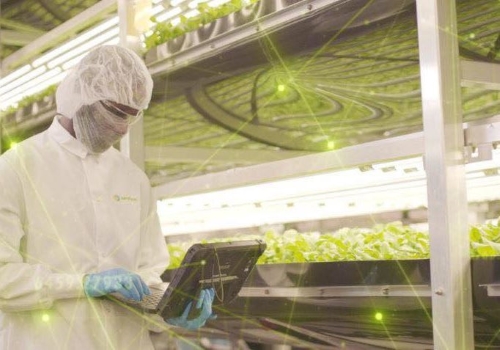
On June 25, AeroFarms started the construction of a vertical farming facility, the AgX Research Center, in Abu Dhabi, UAE. The research center is dedicated to developing the next generation of agriculture in arid and desert climates. The research center covers an area of 54,000 square feet and is expected to be completed and commissioned in the first quarter of 2022.
On August 5, AeroFarms and Nokia announced a partnership to develop next-generation artificial intelligence plant vision technology. Nokia's AI-based drone sensors and advanced machine learning, computer vision, and data analytics technologies integrate with AeroFarms' existing machine vision tools to enhance and enhance AeroFarms' vertical farming capabilities and help AeroFarms collect more plant data.
On August 12, AeroFarms announced the expansion of a new farm in the St. Louis area, which is AeroFarms' largest farm currently, with an area of 150,000 square feet, and will supply vegetables to the US Midwest.
In the future, AeroFarms will also plan to enter the Chinese market.
AppHarvest
AppHarvest was established in the United States in 2017. The farm uses LED lights as fill lights, and the main crops are tomatoes. In 2021, AppHarvest continues to expand the crop range of its farms as it progresses towards its goal of building 12 high-tech farms by 2025, and the AppHarvest Plant Factory now includes more varieties of leafy greens and fruits.
On March 2, AppHarvest purchased a controlled environment farming facility and related properties in Kentucky from sustainable development investment firm Equilibrium for $125 million.
On April 8, AppHarvest acquired agricultural robotics and artificial intelligence company Root AI to improve planting efficiency. Root AI's harvesting machine, Virgo, will provide harvesting support for indoor cultivation, while collecting data to assess crop health and accurately predict yield.
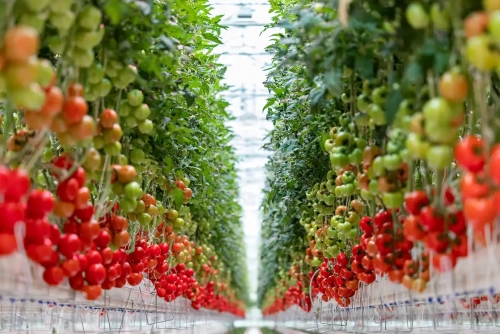
On June 16, AppHarvest received a $75 million loan to drive the expansion of its high-tech farm network, completing its goal of building 12 high-tech farms by 2025. Separately, the company plans to grow leafy greens and strawberries in 2022.
On July 26, AppHarvest teamed up with Amazon veteran Mark Keller to implement an AI-based farm operating system. AppHarvest said it is investing in robotics, artificial intelligence, teleoperation and proprietary seed genetics to enable predictions of crop yield and quality, while managing and training Virgo, an intelligent harvesting robot, to harvest multiple crops.
Bowery Farming
Bowery Farming was established in New York, USA in 2015. It mainly grows green leafy vegetables and currently has 3 vertical farms.
On May 25, Bowery Farming raised $300 million in funding that will be used for more farm openings and technological improvements, including software, sensors and robotics to automate operations. In addition, the funds are also used to expand the product portfolio. Bowery Farming mentioned that hardware and robotics are the keys to making Bowery Farming run at scale and profitable.
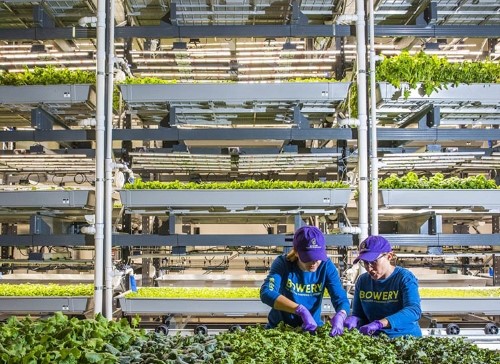
Brightfarms
Brightfarms was established in New York, USA in 2011, mainly using hydroponics to grow salad vegetables. As of 2020, Brightfarms has 5 greenhouse farms in the United States.
On June 24, Brightfarms opened a new research and development center, BrightLabs, in Ohio, USA. The new R&D center increases Brightfarms' research capacity tenfold, while increasing profitability and delivering new product innovations.
Kalera
Kalera was established in Florida, USA in 2010. Kalera mainly grows green leafy vegetables through hydroponics and has developed advanced automation and data collection systems with IoT, cloud, big data analysis and artificial intelligence to manage crop cultivation.
On February 25, Kalera acquired Vindara - a company that specializes in developing seeds for indoor vertical farming environments and other controlled environment farming methods. Kalera said the acquisition could improve the company's current and future crop yields and growth cycle speed, as well as increase the potential for developing new varieties for planting.
On August 11, Kalera acquired the German young leaf growing vertical farm &ever GmbH for 130 million euros. Through this acquisition, Kalera will expand its international business, product line, and enhance its own productivity through the &ever GmbH automated agricultural system.
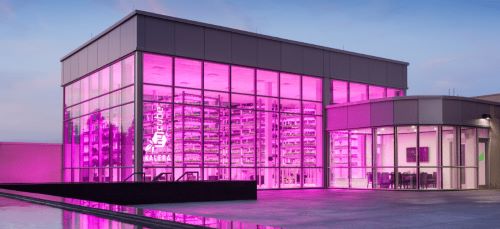
Europe
Infarm
Founded in Berlin, Germany in 2013, Infarm mainly grows salad vegetables, herbs, mushrooms, and currently grows 65 types of agricultural products.
On February 23, Infarm launched its newest high-capacity, automated, modular planting and distribution center that can produce crops equivalent to up to 10,000 square meters of farmland, and is 400 times more efficient in food production than traditional soil farming. The planting center can set up, monitor and analyze environmental parameters such as CO2, temperature, light, pH value and growth cycle online for all farms through an automated mechanical farming system controlled by the cloud.
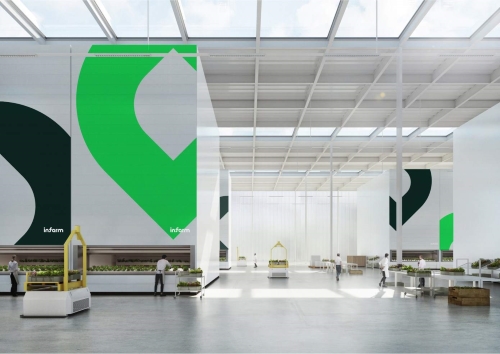
On August 4, Infarm announced that it will build a new 9,760-square-meter cloud-connected vertical farm in the UK. The farm can produce up to 18 million plants per year and produce crops equivalent to 360,000 square meters of farmland. The farm is expected to be in the fourth quarter of this year. Start harvesting crops.
On August 19, Infarm established a new 6,508-square-meter cloud-connected vertical farm in Copenhagen, Denmark. The farm is capable of producing more than 11 million plants per year and is expected to start harvesting by the end of this year.
On December 17, Infarm announced that it has received $200 million in Series D financing. The funds will be used to build more vertical farms, expand to markets in the United States, Canada, Japan and other parts of Europe, and grow more crop varieties. In addition, the company hopes to enter the Asia Pacific and Middle East markets in the next stage.
Lettus Grow
Founded in the UK in 2015, Lettus Grow is a hydroponic grower and system supplier, mainly supplying container plants. The plant uses aeroponics technology with LED lights and Lettus Grow's own control software Ostara for plant planting. The container can grow 30 different crops including green leafy vegetables, microgreens and young leaf salads.
On April 29, Lettus Grow announced a partnership with Harper Adams, UK University of Agri-Food, to explore the effects of using aeroponics and hydroponics on plant growth in greenhouse environments and vertical farms.
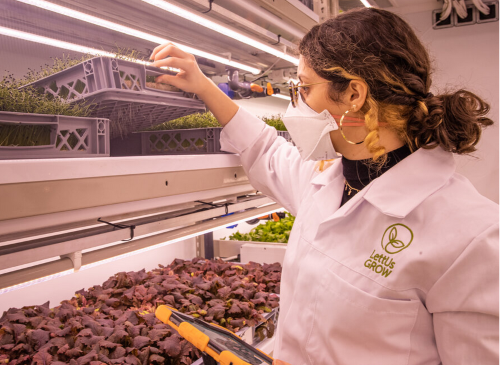
On October 14, Lettus Grow partnered with commercial greenhouse grower La Serra to conduct an indoor tomato propagation trial with the aim of improving tomato propagation quality, consistency and sustainability.
PlantLab
PlantLab was established in the Netherlands in 2010. It is a commercial R&D vertical farming company. It currently has a 4,000-square-meter plant factory in Germany, mainly growing tomatoes, cucumbers, peppers, lettuce and other plants.
On August 25, PlantLab plans to expand the plant factory area to 4 times the existing area, which will allow PlantLab to add 15,000 square meters of planting land for growing vegetables and herbs. In addition, PlantLab plans to gradually expand the planting area of plant factories in the Bahamas, Curacao, and the United States.
summary
Although the promotion and popularization of plant factories still has a period of time, the mainstream plant factories have not retreated because of this, but have expanded their global business territory through acquisition, expansion, and intelligent development.
In terms of acquisitions, the above-mentioned companies have increased their own production capacity and expanded the types of crops they planted while expanding their own scale through planned acquisitions.
In terms of expansion, plant factories with larger areas are established in more regions. While increasing the scale of planting, enterprises also shorten the distance between them and consumers.
In terms of intelligence, enterprises have invested a lot of resources to realize the intelligentization of plant planting, let more high-tech and intelligent facilities participate in the process of plant planting, and continuously optimize planting automation, dataization and environmental control capabilities of plant factories to improve plant planting. Management security and efficiency.
It can be seen that several major plant factories in the world have used the above three methods to expand the scale of planting, increase the variety of crops, and improve the level of intelligent control, thereby improving the input-output ratio of plant factories and promoting the application of plant factories in more places. To a certain extent, this move also serves as a model for the development of other small and medium-sized plant factories. It is believed that the plant factories will gradually achieve large-scale development.
With the continuous exploration of operation modes in the agricultural industry, more efficient and low-cost plant factories will emerge in the future. As one of the infrastructures of plant factories, LED lighting is constantly improving and the cost is decreasing. , and can better match the operation of intelligent equipment, it will definitely be favored by more traditional growers and new plant factories, driving the demand for LED plant lighting to continue to increase.

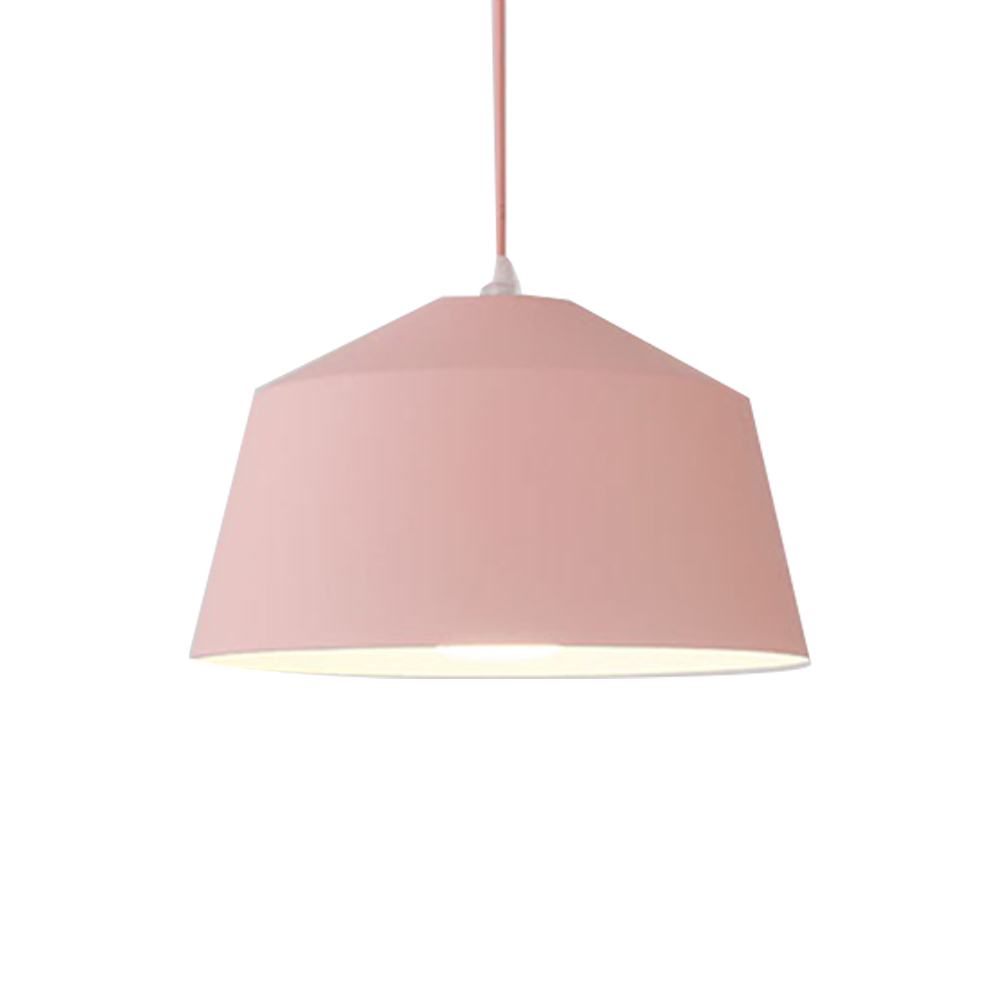
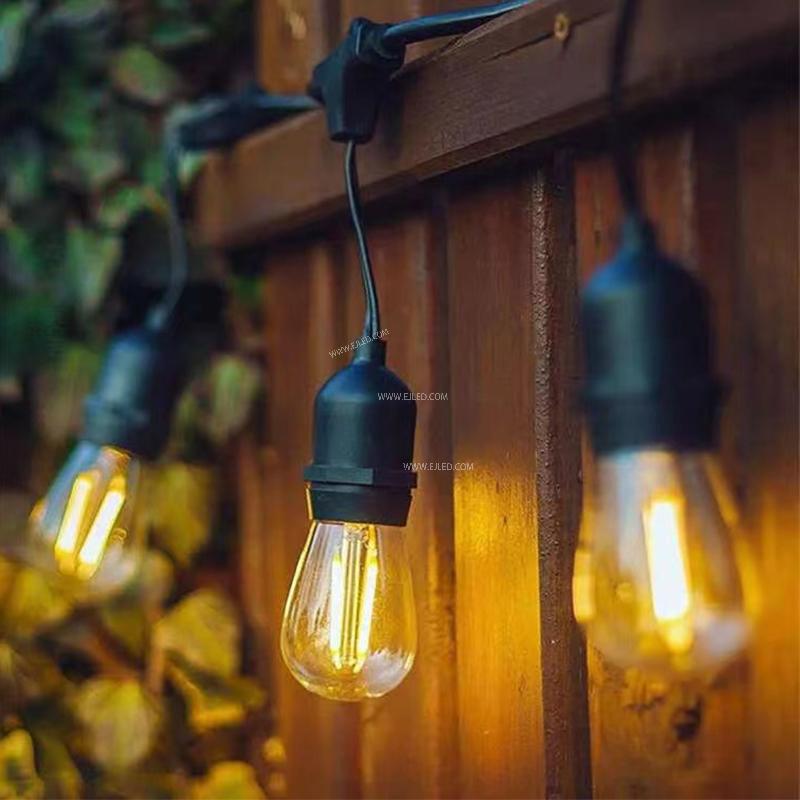



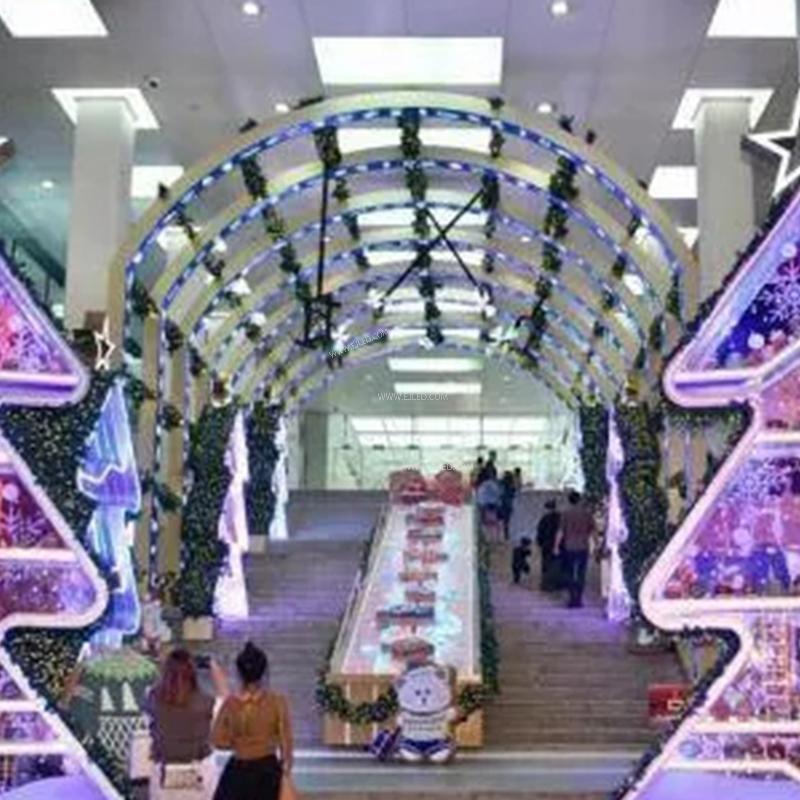

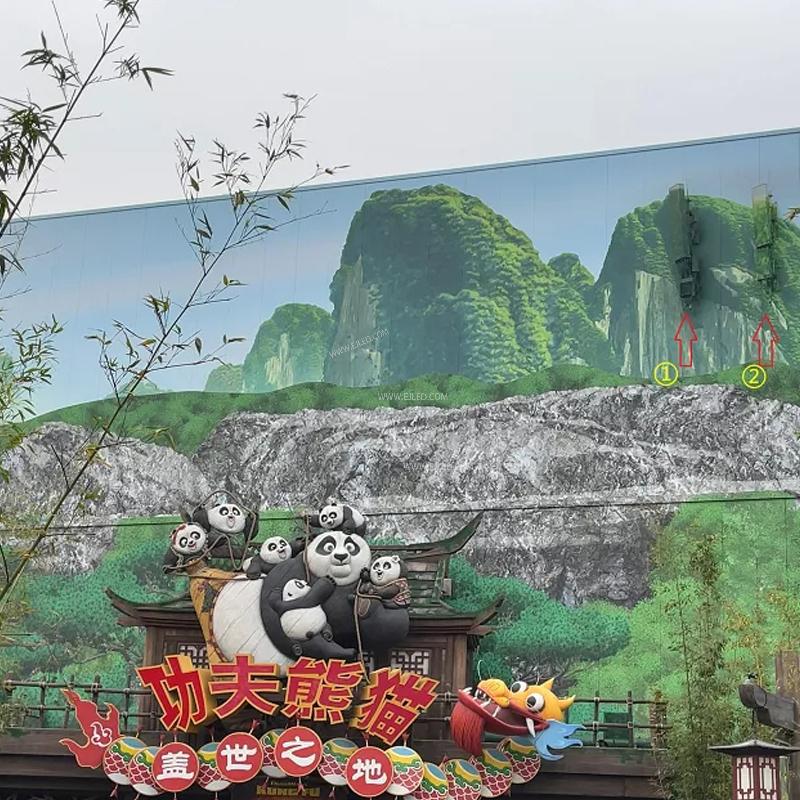
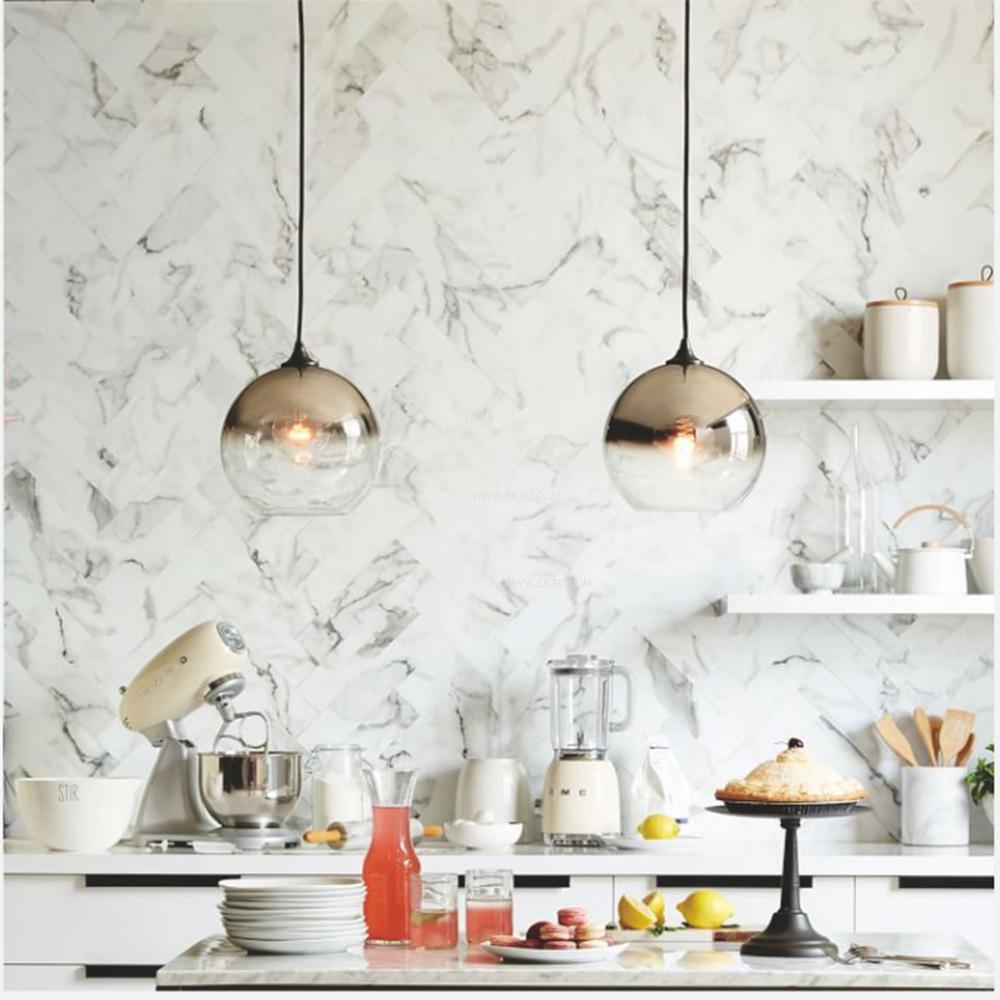
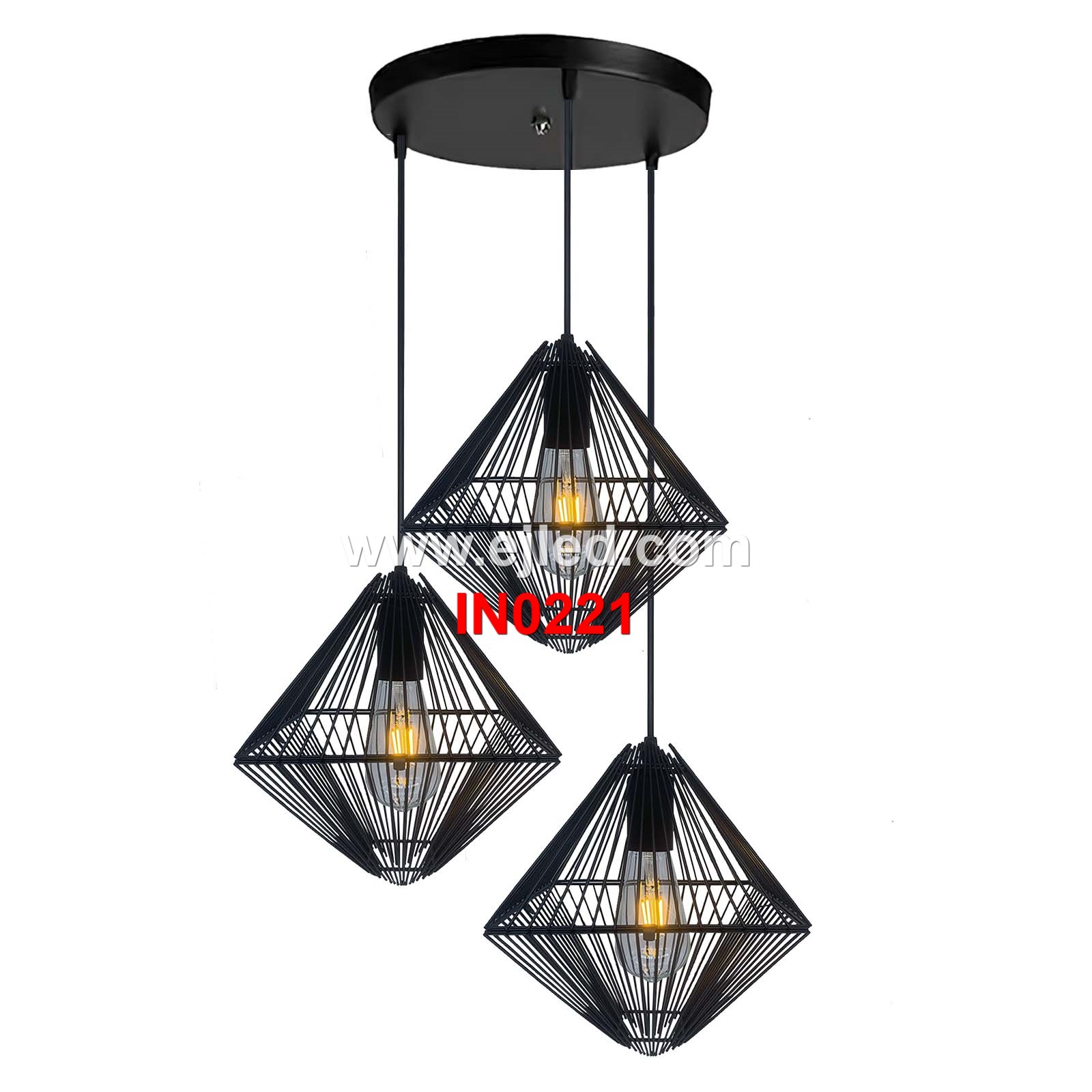
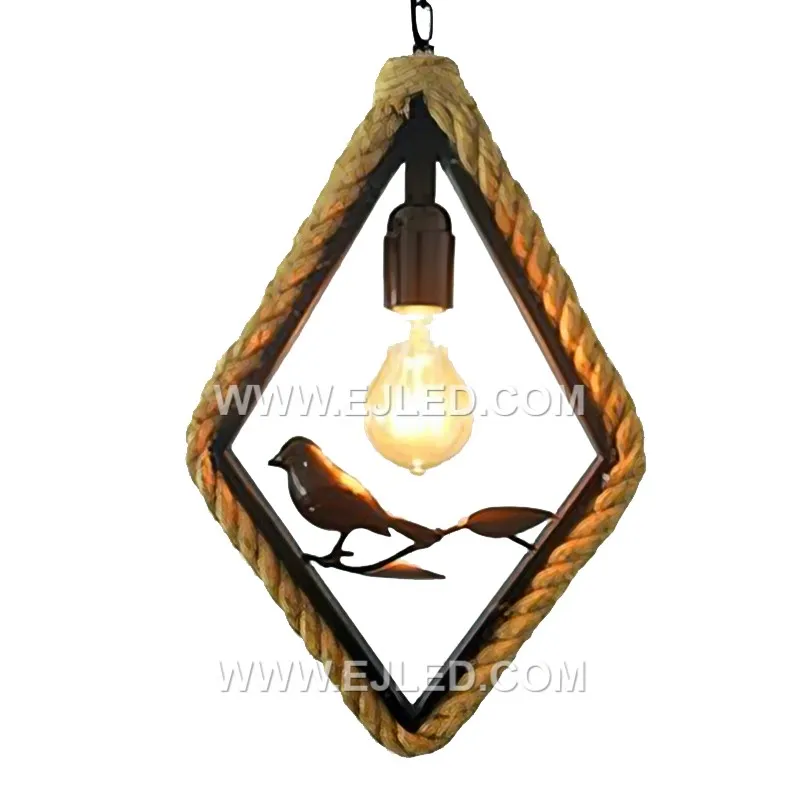
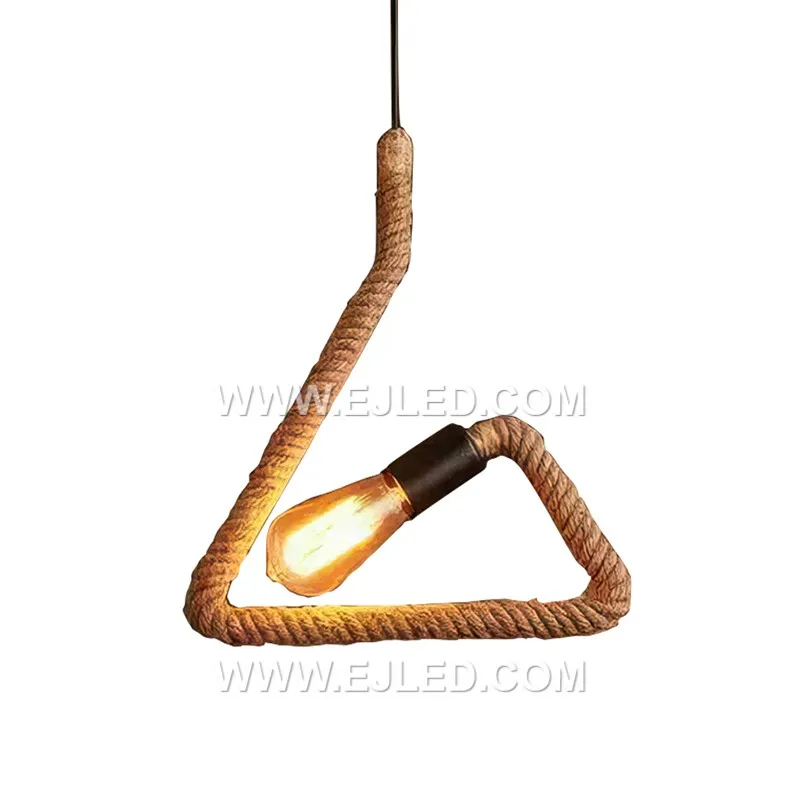
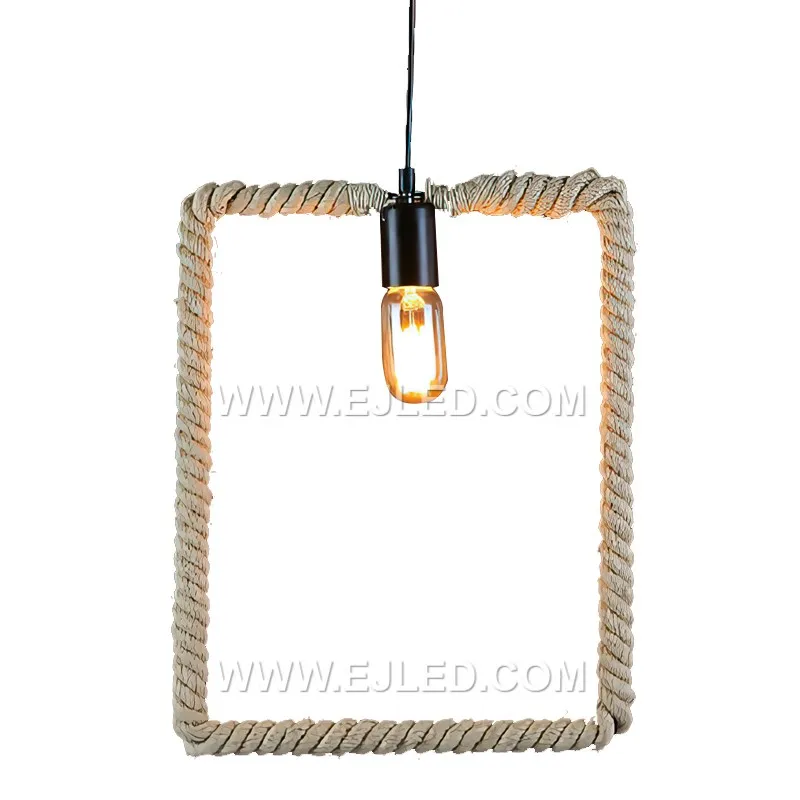
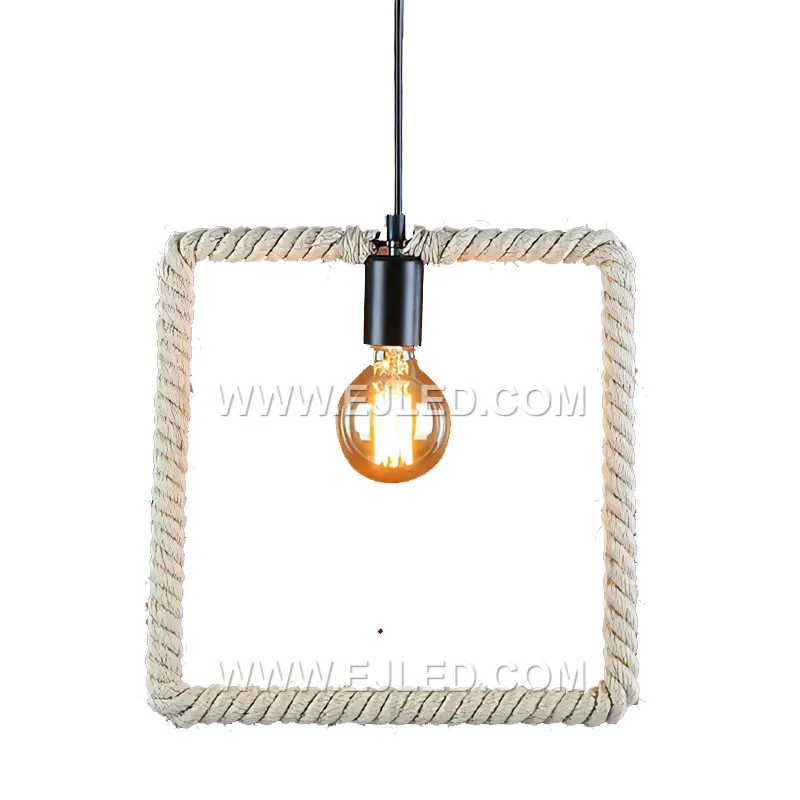
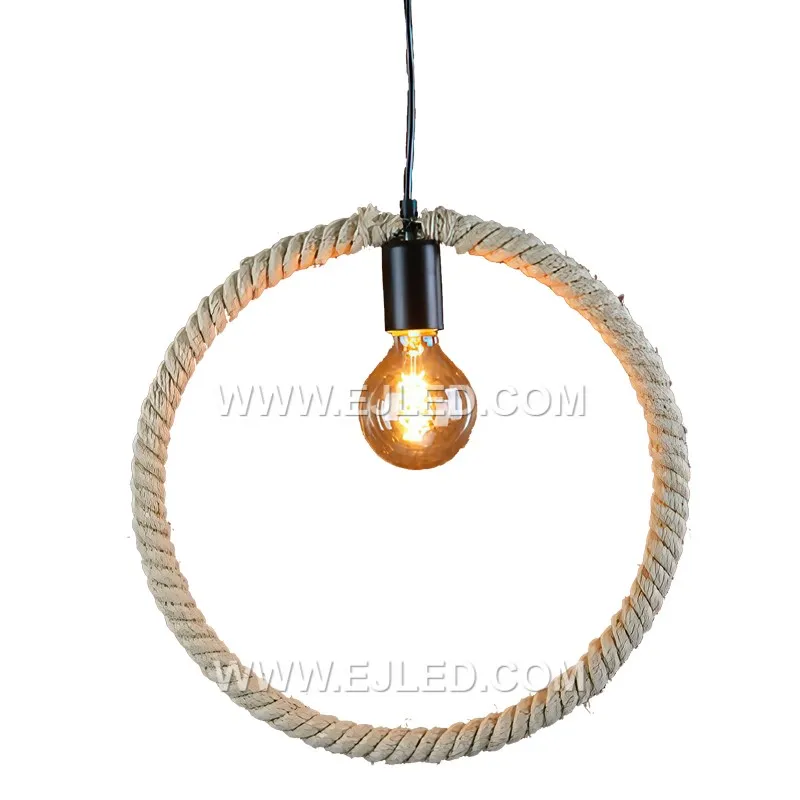
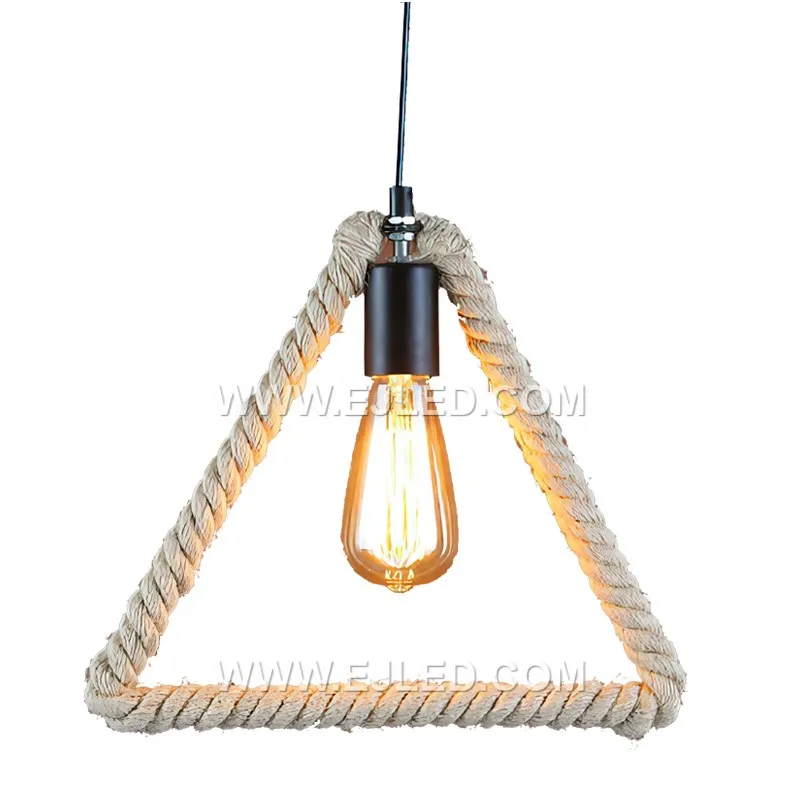
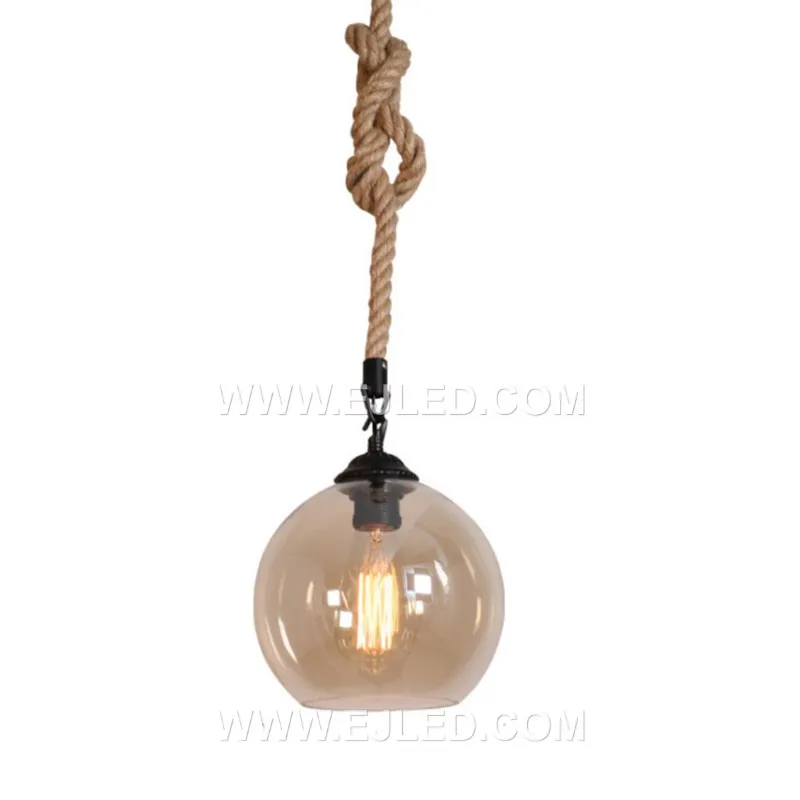
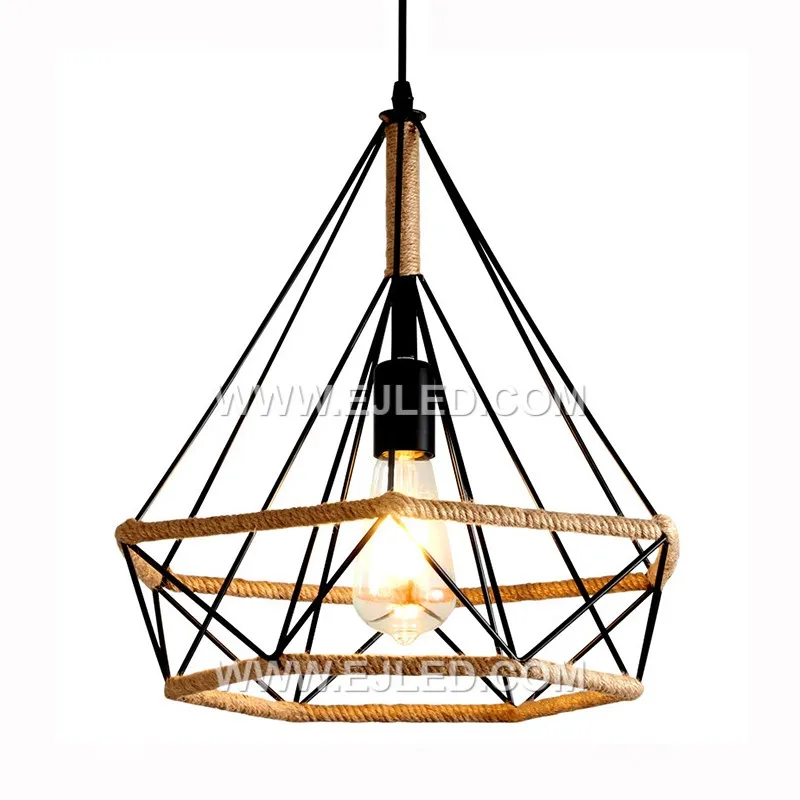
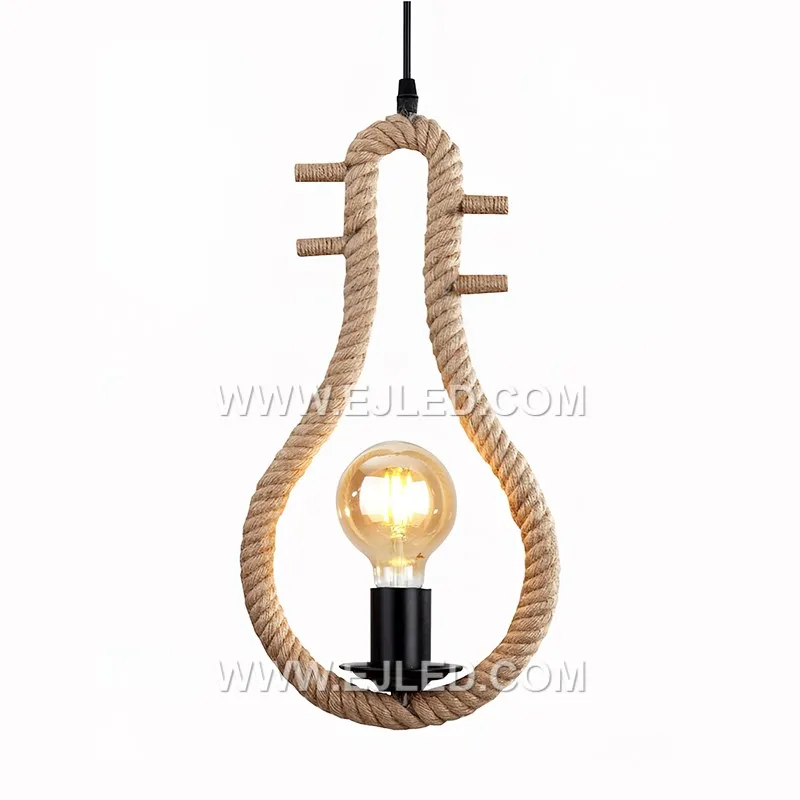
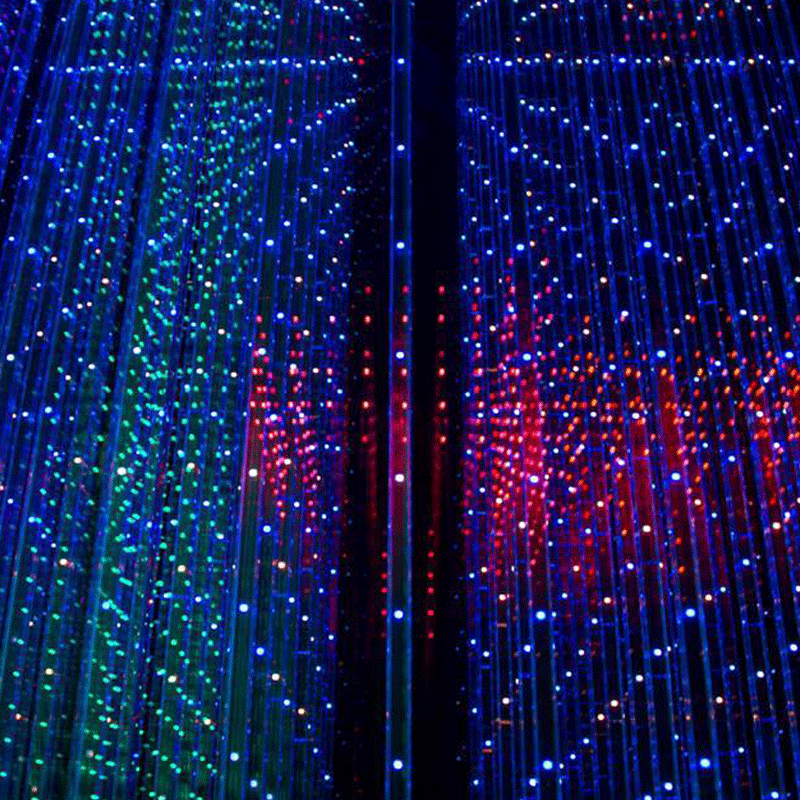

Leave a comment